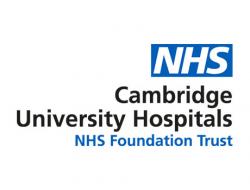
- Vasculitis
- Trials closed
COMBIVAS
A randomised, double-blind, controlled mechanistic study of rituximab and belimumab combination therapy in PR3 ANCA-associated vasculitis
Research summary
The principle of using multiple agents to target different disease mechanisms is gaining traction in many autoimmune disease settings. This trial will study the combination of rituximab and belimumab in anti-neutrophil cytoplasmic antibody (ANCA) associated vasculitis (AAV). Rituximab is a chimeric mouse/human monoclonal antibody against CD20, resulting in depletion of B cells and is used in specific hematopoietic malignancies and in autoimmune disease such as rheumatoid arthritis and ANCA associated vasculitis. Belimumab is a human monoclonal antibody that inhibits the activity of B lymphocyte stimulator protein (BLyS) and is used in treatment of autoantibody positive systemic lupus erythematosus (SLE).
AAV is an organ and life threatening multisystem autoimmune disease, where ANCA are strongly implicated in disease pathogenesis, causing neutrophil activation and endothelial damage. B cell depletion with rituximab, and treatment with glucocorticoids, is associated with reduction in ANCA levels and clinical remission in AAV. However, patients with proteinase 3 (PR3) ANCA subtype and/or predominantly granulomatous disease have a lower remission rate (42% vs 9% failure rate compared to other subtypes) after rituximab and glucocorticoids, with a high subsequent relapse risk of 50% by 13 months. There is a need for newer therapies to reduce the time to remission, to spare glucocorticoid use, and to promote long-lasting remission without risk of relapse. Scientific evidence suggests that dual B-cell targeted immunotherapy with both B cell depletion (i.e. rituximab as anti-CD20) and B lymphocyte stimulator (BLyS) blockade (i.e. belimumab) may be more efficacious than targeting either mechanism alone. Therefore, this mechanistic trial will assess whether dual B-cell immunotherapy by co-administration of rituximab and belimumab will result in improvements in mechanistic endpoints, functional outcomes and clinical status compared to rituximab with placebo.
The efficacy of B cell therapy depends on depletion of pathogenic B cells and the regulated reconstitution of the B cell compartment. Response to rituximab is associated with peripheral blood B cell depletion, but this is incomplete on high-resolution FACS and at the disease tissue level in ANCA vasculitis patients. Early relapse is associated with a failure to become ANCA negative by 6 months, a failure of tissue B cell depletion (including PR3 specific B cells), a high proportion of memory B cells before rituximab treatment and early peripheral B cell reconstitution with a predominant memory phenotype.
Combining B cell depleting therapy (rituximab) with BLyS antagonism (belimumab) may enhance B cell targeting in AAV through several mechanisms: belimumab reduces both CD20+ and CD20- plasmablast populations in SLE patients hence combination therapy may impact a broader B cell population than targeting CD20 alone. High BLyS levels in tissue niches may also retain B cells and protect against depletion by rituximab. As observed in the BLISS studies, belimumab is associated with an early rise in peripheral blood memory B cells, possibly due to mobilisation from lymphoid tissue (19). Studies on tissue B cell depletion and BLyS in pre-clinical models support the concept of combining anti-CD20 and BLyS targeting and assessing tissue depletion in lymph node biopsies as well as in blood. High BLyS levels during B cell reconstitution post rituximab can promote the return of autoreactive B cell resulting in more severe flares. Regulation of BLyS levels post depletion is thought to set a higher stringency for B cell reconstitution, selecting out autoreactive B cells and would directly target any BLyS driven rebound effect.
Rituximab will be dosed at Days 8 and 22, after initiation of belimumab and discontinuation of baseline immunosuppressants. Dosing at Day 8 and Day 22 is justified by: a) separation of start times for belimumab and rituximab, thereby allowing for observation of safety events which may be attributable to starting treatment with the individual agents, and b) evidence that belimumab may mobilise B cells into the periphery making them available targets for anti-CD20 treatment, therefore, starting belimumab prior to rituximab may allow more efficient peripheral B cell depletion by rituximab. Continuing belimumab therapy for 52 weeks ensures that anti-BLyS activity continues during the critical timeframe of B cell reconstitution post rituximab (median time 8.5 to 12.6 months reducing the potential for high levels of BLyS during this time. Assessments
Main inclusion criteria
- 18 years and older
- Have a diagnosis of AAV (granulomatosis with polyangiitis or microscopic polyangiitis)
- Have PR3 ANCA positivity by ELISA at screening
- Have active disease defined by one major or three minor disease activity items on BVAS/WG
- Be capable of giving signed informed consent
Main exclusion criteria
- MPO ANCA or anti-GBM antibody positivity by ELISA at screening
- Presence of pulmonary haemorrhage with hypoxia at screening
- Estimated glomerular filtration rate (eGFR) <30 ml/min/1.73m2 at screening
- Have an acute serious or chronic infection at screening
- Have received any B cell targeted therapy within 364 days of Day 1
- Have received cyclophosphamide within 180 days of Day 1
- Have received any steroid injection (e.g., intramuscular [IM], intraarticular, or IV) within 60 days of Day 1 (unless given during or 14 days before screening period)
- Have received >1.5mg methylprednisolone (IV) between 14 days prior to screening and Day 1 (including Day 1)
- Have received oral prednisolone >10mg/day (or equivalent) on average over the 30 days prior to screening
- Have undetectable peripheral blood B cells at screening
- Have IgG <400mg/dl at screening
Funders and sponsors
Funders: Medical Research Council & GlaxoSmithKline
Sponsors: Cambridge University Hospitals NHS Foundation Trust
Chief investigator
Dr Rachel Jones
Contact details
Clinical Trial Coordinator: Kim Mynard
Telephone: 01223 768317 | Email: [email protected]






